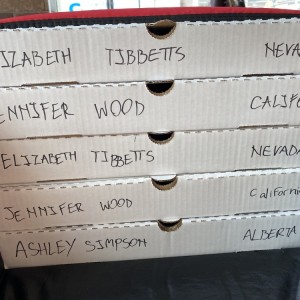Get to Know the Edmonton CDC
The Edmonton Community Development Company is developing McCauley through community engagement.

The Edmonton Community Development Company (CDC) has been active in McCauley for a couple of years, but the organization seems like the neighbourhood’s best-kept secret. Many have still never heard of the CDC. Even those who are aware of the CDC are unsure of what the organization does.
The Edmonton CDC is a small organization of four staff. Its core funders include the City of Edmonton, Edmonton Community Foundation, United Way, and Homeward Trust. The City has also committed $10 million of land to the CDC.
“The idea of a community development corporation or company has been discussed on and off for at least 30 years, but never got legs until the Mayor’s Task Force to End Poverty saw community development as a way to address low income in neighbourhoods,” says Mark Holmgren, Executive Director of CDC.
A former McCauley resident, Holmgren’s background includes serving as the CEO of Bissell Centre, a senior staff at United Way, and as the Executive Director of Operation Friendship back when its current multi-purpose centre was built.
The CDC develops housing and commercial properties, either on land assets transferred to the CDC by the City, or acquired on its own.
“We try to address neighbourhood aspirations and ‘community pain’ through engagement and then by developments that a neighbourhood can actively support. We don’t consult with neighbourhoods because we have to – we do it because it’s the right thing to do,” Holmgren explains.
Last year, in tandem with the McCauley community, the CDC helped residents create an investment co-op, raise $1.1 million from more than 100 local investors in order to purchase The Piazza on 95th Street, a long-time source of community pain. “It’s a classic example of resident-led community development that resulted in a major neighbourhood asset being owned by the community,” says Holmgren.
In addition to its recent purchase of Wyser Manor, the CDC has acquired two derelict properties on 93rd Street, which it will develop into three units of family housing on each site. It plans on purchasing eight more of these problem properties and developing them into just below market housing. “The CDC is prepared to invest approximately $6 million to redevelop these 10 properties, and we hope to leverage our work into more of the same from the City and other developers,” Holmgren adds.
Major projects in McCauley currently include being in the “late stages of community engagement to identify what to build on what is called the Paskin lands on 95 Street and 106 Avenue,” says Holmgren.
The lands provided to the CDC by the city involve contracts that allow the CDC to take possession when the organization is ready to develop. “Until we take possession, those lands are still the responsibility of the city,” Holmgren explains. “The reason why we wait is so we can avoid the costs of owning vacant land (property taxes, land maintenance, insurance, fencing, etc.).”
The CDC also serves as a “leader, partner, capacity builder, and innovator.” Holmgren cites examples as:
- Buying and redeveloping derelict properties while working with the city and others to co-create a long-term strategy to increase efforts.
- Offering a Social Enterprise Bootcamp once or twice a year that helps social entrepreneurs from all walks of life move forward with their social purpose business intentions.
- Working with builders, designers, planners, and the city to identify innovations that reduce construction costs, streamline city processes, enable alternative financing, promote authentic engagement, and create partnerships that benefit local residents.
Holmgren emphasizes that the Edmonton CDC will not build what neighbourhoods don’t support.
“Our relationships with, and understanding of, urban core neighbourhoods have made it clear that residents do not want more permanent supportive or subsidized housing because they have far more of such housing than do other neighbourhoods,” he says. “Our focus is on acquiring or building near market or just below market homes for sale or rent in order to attract more families into the area.”
“While we support efforts to house the homeless and attack housing insecurity through subsidized housing, neighbourhoods also need market housing and local businesses to foster an inclusive, healthy socio-economic economy. There has to be a balance and for too long urban core neighbourhoods have been seen as the place to locate social programs and social and non-market housing. We believe we have a role to play in creating that balance.”



_300_300_90_c1.jpg)